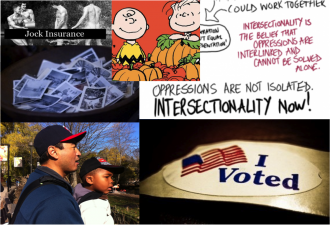 Missing the Point
Missing the Point
I was so struck last night to hear a little piece about the sociologist Clifford Nass on NPR (in a fun side note, I’d like to point out that Nass was also a computer scientist and professional magician… which is pertinent to the next sentence). Yes, he was known for his warning that multitasking was dangerous to real thought and real learning, but what caught my ear was how his colleagues spoke of his relationship with expanding technologies. Nass didn’t seem to have any antipathy for the tech—he saw its utility, of course—but he realized that all those blinky things were going to be attention sucks. Multiple distractions tend to be bad when you aren’t a good multitasker (to be fair, he didn’t think anyone was a good multitasker), but worse, he seemed to believe, the divided attention meant that his students paid attention to too much noise. Over time, he felt his students were getting worse and worse at understanding an argument and repeating it clearly. They weren’t good at finding the point or pulling out a specific nugget of information from a whole article. They had trained themselves (or been trained by their technologies) to see the forest, not the trees. I’m not wholly convinced, but I am intrigued—and I’m sad that the world has lost another great sociologist in the meantime.
In Case You Missed It:
The Social Side of Politics. “Off-year” elections tend to get a little less national attention, but all those hokey local ads add up to a socio-political experience. And sometimes Michelle Bachmann.
The Editors’ Desk:
“The Personal is Sociological,” by Doug Hartmann. In which Hartmann explores a few recent examples of the sociological memoir, reminding sociologists that they’re part of society, too.
Features:
“Like Father, Like Son,” by Darren Wheelock. A former student of Hartmann’s shares his own sociological memoir about adoption, race, culture, and social justice.
“How Sociology Failed My Family,” by Robert L. Reece. A Duke PhD candidate on the power of understanding what little power his understanding holds.
Citings & Sightings:
“Walking the Big Apple,” by John Ziegler. And he would walk 6,000 miles, and he would walk 6,000 more, just to be the sociologist who walked 120,000 city blocks and fell down at your door.
“Neighborhoods and Social Cohesion,” by John Ziegler. Call your realtor. Depending on your priorities, you should know, cul-de-sacs increase safety and neighborliness, but they also probably make you fat. Sometimes sociology isn’t that helpful.
Teaching TSP:
“Whiteness as a Visa,” by Rahsaan Mahadeo. Whiteness as a currency, in many senses.
There’s Research on That!
“Spies Like Us,” by Amy August. Privacy and government spying? TROT!
A Few from the Community Pages:
- Graphic Sociology returns with “Race and ethnicity in America.”
- Girl w/ Pen! brings on new ink from C.J. Pascoe and Tristan Bridges and gets the Internet asking whether you can, essentially, ever be an effective “ally.” Are straight white men allowed to advocate for marriage equality while pointing out that they’re not gay? If not, why?
- Public Criminology on lesser-recognized holidays and incarcerated fathers.
- Sociology Lens argues that stopping stop-and-frisk (among other things) could help close the education gap.
Scholars Strategy Network:
“How International Election Observers Can Help Fledgling Democracies,” by Leslie E. Anderson.
“Race, Immigration, and the American Welfare State,” by Cybelle Fox.

Comments